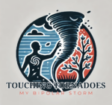When I decided to start a blog about my experience with bipolar 1 disorder, it felt like the right thing to do. I’ve always been someone who loves to share my story, and this seemed like a way to not only open up about my journey but also to help others understand what it’s really like to live with this condition. But there’s something about it that’s starting to worry the people around me. And honestly, it’s something I can’t completely ignore.
The thing is, when I get into a project, especially one like this, I go all in. Anyone who has bipolar 1 probably knows what I mean when I say that. I get hyper-focused, like a switch gets flipped, and I can’t stop. I’ve got all these ideas, all this energy, and I’m just running with it. Right now, it’s my blog. The problem? That level of intensity can be overwhelming for those who care about me. They start to notice when I’m burning the candle at both ends, forgetting to check in with them, or just completely losing track of time. And sometimes, they’re right to be concerned.
Here’s where it gets tricky: the thing I’m doing to share my experience with bipolar 1 is actually a perfect example of what happens when I’m in a manic phase. My hyper-focus, my inability to stop once I’m started — it’s all part of the disorder. The very thing that I’m using to open up about bipolar 1 is also kind of a walking example of how the disorder takes over my life. It’s a bit of a double-edged sword.
Now, when my family or friends raise their concerns, I can’t just brush it off. They’re worried because they’ve seen what happens when I get too wrapped up in something. They know that I can push too hard, stretch myself too thin, and end up burning out. And the worst part is, I can’t argue with them. Because, honestly, they’re right. When I’m manic, I’m not always in control of the decisions I’m making. I can’t always tell when I’m overdoing it. But, on the flip side, I also can’t ignore the fact that I’m passionate about this blog, and I want to make a difference. It’s a struggle to balance the two.
This is the part where the paradox sets in. I’m sharing my story about bipolar 1 to educate others, to open up conversations, and to show people that they’re not alone. But the way I’m doing it — with this hyper-focus and intensity — could be a cause for concern. And I get it. It’s a fine line. On one hand, I want to share everything I’m learning and experiencing. On the other hand, I know that my “all-in” approach can sometimes be a red flag for those around me.
So, are they right to worry? Maybe. I can’t deny that the same enthusiasm that fuels my work could also be a sign that things aren’t totally balanced. Bipolar disorder affects more than just me. It affects my family, my friends, the people who care about me. And they don’t want to see me go too far down a path that I can’t control.
That’s where I’m at right now. I want to keep pushing forward with this blog and continue sharing my journey, but I also have to take a step back and make sure I’m not crossing that line into mania. It’s about finding that balance between doing what I’m passionate about and staying grounded. Because at the end of the day, while this blog is a way for me to express myself, I have to remember that the people I love are part of this story too. And their concerns? They matter just as much as mine.
Like this:
Like Loading...


